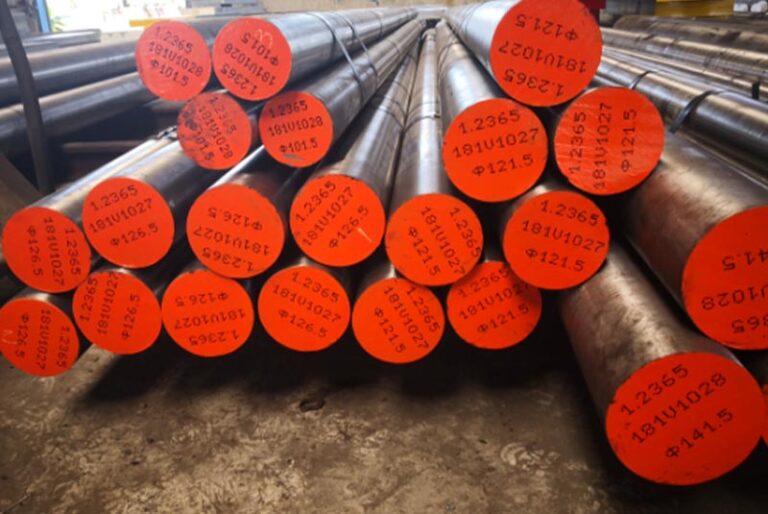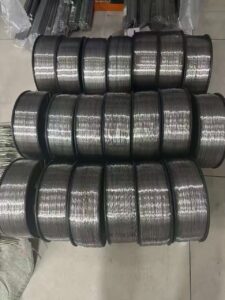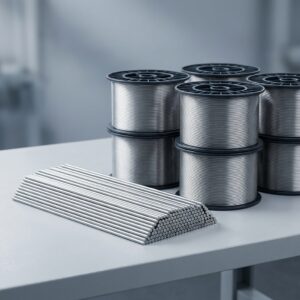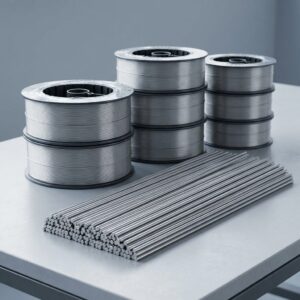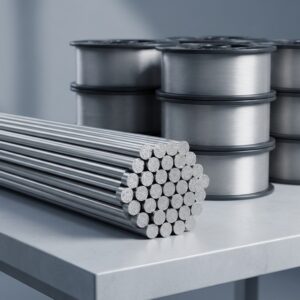Unveiling the Marvels of H10 1.2365 Tool Steel: A Comprehensive Exploration
Introduction
In the realm of tool steels, certain alloys stand out for their exceptional properties crucial for various industrial applications. Among them is H10 1.2365 Tool Steel, celebrated for its outstanding combination of hardness, toughness, and heat resistance. Join us as we embark on a journey to uncover the intricacies and advantages of this remarkable material, delving into its composition, properties, applications, suppliers, pricing, and expert insights.
Overview of H10 1.2365 Tool Steel
H10 1.2365 Tool Steel is renowned for its superior properties, making it a preferred choice for a wide range of tooling and machining applications.
Chemical Composition
| Element | Percentage |
|---|---|
| Carbon (C) | 0.32-0.38% |
| Silicon (Si) | 0.80-1.20% |
| Manganese (Mn) | 0.15-0.40% |
| Chromium (Cr) | 4.75-5.50% |
| Vanadium (V) | 0.30-0.50% |
Mechanical Properties
- Hardness (Rockwell C): 58-62 HRC
- Tensile Strength: 1300-1600 MPa
- Yield Strength: 1100-1300 MPa
- Elongation: 8-12%
Standards
- H10 1.2365: International standard for tool steels
Exploring the Features and Advantages
H10 1.2365 Tool Steel boasts a plethora of features and advantages that make it an ideal choice for tooling and machining applications.
Features
- Excellent wear resistance and heat resistance
- High hardness and toughness
- Good machinability and dimensional stability
- Suitable for hot work tooling applications
Advantages
- Widely used in applications requiring high temperature resistance, such as die casting, hot forging, and extrusion
- Provides reliable performance under heavy loads and extreme temperatures
- Offers cost-effectiveness and ease of heat treatment for optimizing properties
Comparison Between H10 1.2365 Tool Steel and Competing Materials
Let’s compare the advantages and disadvantages of H10 1.2365 Tool Steel with a competing material, Alloy X:
| Parameter | H10 1.2365 Tool Steel | Alloy X |
|---|---|---|
| Hardness | Very High | Moderate |
| Toughness | High | Low |
| Heat Resistance | Excellent | Moderate |
| Cost | Moderate | Higher |
Applications and Uses
From die casting to hot forging, H10 1.2365 Tool Steel finds widespread application in various industries.
| Industry | Applications |
|---|---|
| Die Casting | Die casting dies, inserts, cores |
| Hot Forging | Hot forging dies, extrusion dies |
| Tooling | Hot work tooling, stamping dies, mold inserts |
Navigating Suppliers and Pricing
Sourcing H10 1.2365 Tool Steel requires careful consideration of reliable suppliers offering quality products at competitive prices.
| Supplier | Price Range (per unit) | Description/Notes |
|---|---|---|
| Bohler Uddeholm | $20 – $30 per kilogram | Leading global supplier of tool steels |
| Thyssenkrupp | $25 – $35 per kilogram | Specializes in high-performance tooling materials |
| Crucible Industries | $30 – $40 per kilogram | Offers a wide range of tool steel products |
FAQs about H10 1.2365 Tool Steel
Q: Can H10 1.2365 Tool Steel be heat treated?
A: Yes, it can be heat treated to achieve desired mechanical properties, such as increased hardness and heat resistance.
Q: What are the common applications of H10 1.2365 Tool Steel?
A: Common applications include die casting dies, hot forging dies, and various hot work tooling applications.
Q: Where can I buy H10 1.2365 Tool Steel?
A: You can source H10 1.2365 Tool Steel from reputable suppliers such as Bohler Uddeholm, Thyssenkrupp, and Crucible Industries.
Q: What specifications does H10 1.2365 Tool Steel conform to?
A: This tool steel conforms to standards such as H10 1.2365, ensuring compliance with stringent quality requirements.

